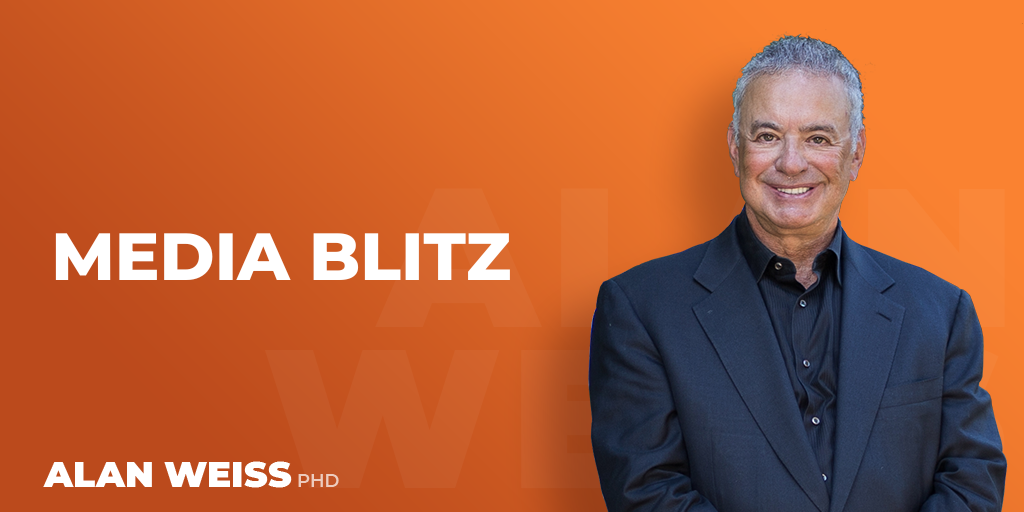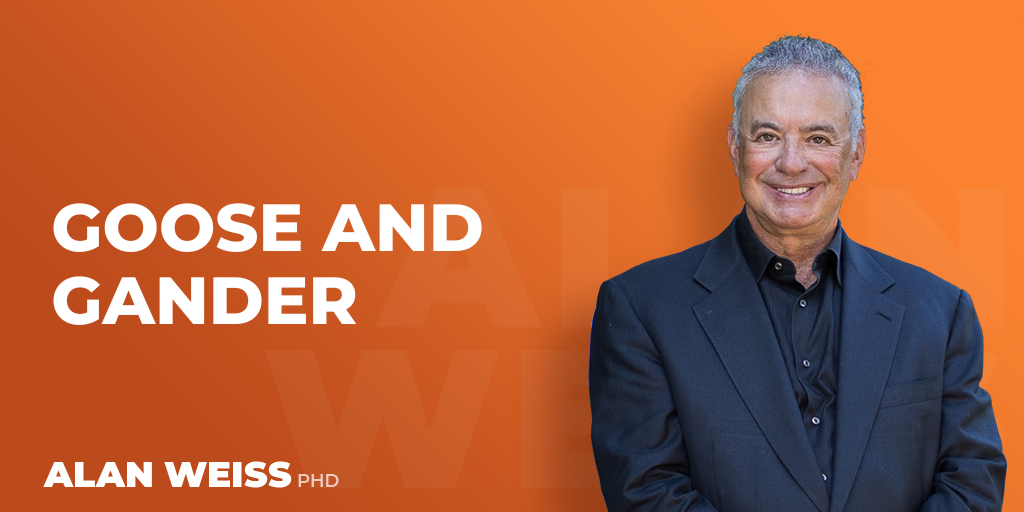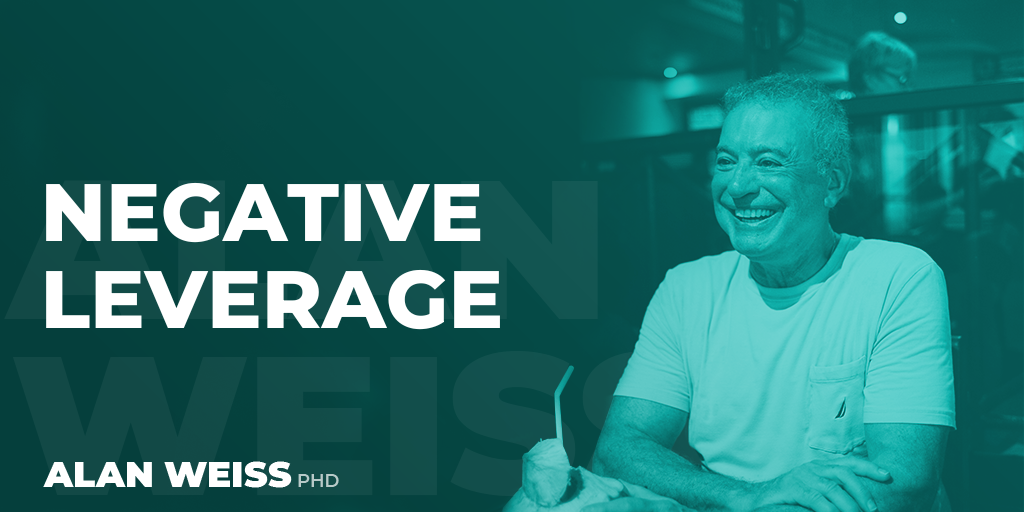Your Legacy is Now
Life is not a search for meaning from others, it’s about the creation of meaning for yourself.
For over 30 years Alan Weiss has consulted, coached, and advised everyone from Fortune 500 executives, state governors, non-profit directors, and entrepreneurs to athletes, entertainers, and beauty pageant contestants. That’s quite an assortment of people, and they run into the thousands. Most of them have had what we euphemistically call “means,” and some of them have had a lot more than that. Others have been aspiring and with more ends in sight than means on hand.
Alan Weiss states:
I’ve dealt with esteem (low), narcissism (high), family problems, leadership dysfunctions, insecurities, addictions, and ethical quandaries. And I’ve talked about them through the coronavirus crisis. But don’t get the wrong idea. About 95% of these people have been well-meaning, honest (to the best of their knowledge), and interested in becoming a better person and better professional. Otherwise, they wouldn’t be talking to me.
I found the equivalent of the “runner’s wall” in their journeys, where they must break through the pain and the obstacles and then can keep going with renewed energy and spirit. But runners know how far they must go after the breakthrough, be it another half lap or another five miles. There is a finish line.
I’ve found that people in all positions, even after the “breakthrough,” don’t know where they are in the race, let alone where the finish line is.
They do not know what meaning is for them. They may have money in the bank, good relationships, the admiration of others, and the love of their dogs. But they have no metrics for “What now?” They believe that at the end of life there is a tallying, some metaphysical accountant who totals up their contributions, deducts their bad acts, and creates the (hopefully positive) difference.
That difference, they believe, is their “legacy.”
But the thought that legacy arrives at the end of life is as ridiculous as someone who decides to sell a business and tries to increase its valuation the day prior. Legacy is now. Legacy is daily. Every day we create the next page in our lives, but the question becomes who is writing it and what’s being written. Is someone else creating our legacy? Or are we, ourselves, simply writing the same page repeatedly?
Or do we leave it blank?
Our organic, living legacy is marred and squeezed by huge normative pressures. There is a “threshold” point, at which one’s beliefs and values are overridden by immense peer pressure. Our metrics are forced to change.
In an age of social media, biased press, and bullying, we’ve come to a point where our legacy, ironically, is almost out of our hands.
Yet our “meaning”—our creation of meaning and not a search for some illusive alchemy—creates worth and impact for us and all those with whom we interact.







Avonelle Lovhaug
Hmmmmm…I’m still able to get to my profile (and yours).
In general, I’ve had fairly good luck with LinkedIn stability, although it has seemed a bit slow lately. But I’ll admit I’ve never had lots of people try to simultaneously link to me.
Stu Kirk
Is linkedin a new paradigm ?
Like Alan I was sceptical,but it sure feels like their’s value there someplace.
I remember in 1994 or 95 hosting a conference for 100 NYC CIO’s on ‘the internet’, and fewer than 5 had heard of a program called ‘mosiac’ which then became the netscape browser and was finally the tool that made the internet usable for ordinary mortals. Mosiac was a new paradigm, if we could figure out what to do with it a lot of new options would open.
I’ve been playing with linkin for about a week now and I same feeling I had back then. I don’t know what to do with it or how to use it, but it sure feels like there’s a pony in there someplace.
Avonelle Lovhaug
Stu: The early LinkedIn benefit for me has been reconnecting with former colleagues who I probably wouldn’t have found through traditional means. I’ve also met a few new people via LinkedIn, but I don’t think it will ever replace other networking approaches. To me, it is great for identifying those “connections” but not necessarily for making them.
I also use it as a place to check out new contacts. I can see their background and interests, which occasionally has proven useful.
Alan Weiss
At last, a useful, objective commentary about Linkedin. My quite dispassionate observations will appear once I’ve given it a chance. In just a couple of days, however, the gizmo tells me I’ve gone to 600,000 or so contacts. It sounds like one of those multi-level marketing claims! I find the site slower than almost anything else I visit.
Laurent Duperval
I think they are pulling a Twitter. I’m not sure what happened but over the last two weeks or so, performance has drastically(!!) gone south.
I know they added a lot of Twitter-like and Facebook-like features and I am guessing their servers are crumbling under the pressure.
But, enough techno-speak.
I recently asked the owner of a company if he knew anyone I could contact regarding my services. He told me “Go to my LinkedIn profile, get on my network, figure out who you want to meet among my contacts and I’ll send them an invitation.”
I’ll report (somewhere) how that works out.
L
Jim Eaton
For what it’s worth, Robert Middleton has some interesting thoughts on how to effectively use LinkedIn:
http://tinyurl.com/5z8gv4
Alan Weiss
I like Robert a lot, but those are very generic. Even the recommendations that Linkedin touts, from Gary Kawasaki, are pretty lame. I still haven’t discovered an easy way to send an email or notice to everyone in your network. There must be a secret decoder ring….
Peter Bodifee
Well Alan, LinkedIn is not to be used a way to send an email or notice to everyone in your network. So you won’t find that feature. That is considered by most users as spamming. And sorry, you don’t have 600.000 contacts. In fact at this moment you have 54 right now. Your network up to the 3rd degree maybe 600.000 users big…
Bob Smiley
Hi Alan!
I’ve been using LinkedIn casually for about 3 years now.
Do you know me? You’re in my LinkedIn network already! You’re in my 3rd degree of separation, so someone I know knows someone you know. In fact, two someones I know. So we’re already connected in an ethereal sort-of way.
One of the tricks I’ve had with LinkedIn is to get the introduction notes passed all the way to the target. Some of my introductions never reach the target simply because the middle-people never pass it along, either because they didn’t feel comfortable doing it, or because they didn’t check their inbox, or because they signed up and played with it for a small while and never returned. So the “reliability” of the network is hard to tell.
For example, I’ll be sending you a note requesting to be added to your network. I have two choices on my network to pass it through: one close colleague who I greatly trust, and another who, frankly, I can’t remember who he is. What I don’t know is who the link is between my trusted colleague and you, and whether an introduction coming from my colleagues link to you would be something you would consider as a “positive” introduction. So, using LinkedIn to make initial introductions doesn’t seem to be good unless they are in your 2nd tier, so you both know the person making the introduction. This is more how real networking works anyway.
As I look over my own LinkedIn network, I see many colleagues I’m very happy to maintain contact with. but some of them are there because they invited me and, well, I didn’t feel like I should turn them down, but wouldn’t have invited them to be on my network. Sort of how most of my wedding attendants got invitations.
OK, I’m seeing I need to take a better approach with my networking skills.